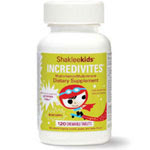On this installment of Natural Sweeteners (see my previous post for the first thoughts), I will discuss a few of the choices available at local markets and health food stores. Of course, I won't be able to cover them all. If I overlook one that you have a particular question about, please comment or email me so I can address your specific question. To refresh your memory on why we want to limit white sugar consumption, refer to my post on Sugar Fasting.
Local Raw Honey: I use honey often. I specify "raw" because honey includes several enzymes, plant nutrients, and antimicrobial factors that are destroyed in pasteurization. I specify "local" because honey imported from Argentina and other Central and South American countries contains traces of DDT. Honey can be used in a variety of recipes, but should not be given to infants under one year of age.
Sucanat/Rapadura: You'll notice that most of my sweet recipes include Sucanat. I find it very easy to substitute for white sugar since it is a granulated sweetener (as opposed to liquid honey) and can be replaced cup for cup. Sucanat is basically evaporated cane juice. It is very minimally processed and still contains the trace minerals and other nutrients present in cane juice. Rapadura is similar to Sucanat, yet it contains an even higher amount of nutrients because it is sun-dried. It is a bit pricier and so I only purchase it when I find a really good deal on it.
Other Organic Sugar Products: There are several other organic sugars on the market. It is difficult to keep up with them all! Here is a rule of thumb: if it is white, light or crystallized, it has been dramatically processed. After the processing, the known (and unknown) nutrient factors will not remain intact. Look for options that are dark and granulated in asymmetrical "blobs" rather than crystals. Date sugar is an example of this, but Turbinado or Sugar in the Raw are crystallized.
Maple Syrup: Maple syrup is a good option for pancakes! It is infinitely better than "syrups" made from high fructose corn syrup and artificial flavorings. But, pure maple syrup is expensive. We do keep maple syrup in the house and use it very sparingly.
Molasses: Molasses is another good option for sweetening things. It contains a great deal of minerals since it is actually the "waste product" of white sugar manufacturing. Molasses is the good stuff that's been taken out! Yet, it has a very strong flavor which limits its usefulness.
Stevia: Stevia is actually an herb and not related to the sugar family at all. All of the previous sweeteners I've listed must be used in moderation because they effect our body's blood sugar levels. We don't want to cause our pancreas to strike, so we limit all forms of sugar (especially white sugar because it is an anti-nutrient too). Stevia has very little effect on our blood sugar levels. However, it is an herb that should be used with caution as should all herbs. In the past it has been considered medicinal and has not been tested for safety as a part of a daily diet. We do use stevia in our Power Bar recipe since it is low-glycemic. But, I don't consider it an "eat often" food. By the way, people who are allergic to certain weeds may react to stevia as well.
Splenda: I don't believe this one has a place with Natural Sweeteners, but I would like to give my thoughts about splenda. Yes, as the advertisements state, it started out as sugar from a sugar cane plant. However, in order to process away the calories, all other nutrients have been processed away as well. Even more important, the actual chemical structure is altered. This should send up all sorts of red flags. It is not a food. It is not close to a food. It is closer to a plastic or other man-made derivative. I expect to read about devastating health effects of this artificial sweetener in years to come. It just hasn't been on the market long enough for the evidence to mount.
Yikes, this post got long! And I feel like I've only touched the subject. There will be another post to follow in the near future. I would like to mention more about High Fructose Corn Syrup and artificial sweeteners as well. If you would like further information about any of the sweeteners I listed above, please let me know and I will address them in greater depth.
Believe it or not, I am a very slow writer. Actually, I am a slow talker as well... which makes me really thankful for my patient husband who is willing to listen long enough for me to formulate the words for what I'm trying to say. As I was saying, I am a slow writer. And I REALLY appreciate your patience as I mull over a topic like this for the weeks it takes me to finish all my thoughts. Thanks for coming back for the rest of the story. I sincerely appreciate it.
Subscribe to:
Post Comments (Atom)









































4 comments:
Getting away from refined sugar was one of our first steps in eating more traditionally. We started that almost 3 years ago, and it's definitely part of who we are as a family now. I like to mix raw honey with molasses and we use that on pancakes too. YUM!
I have also been told that using local honey helps with seasonal allergies since we are ingesting small amounts of the offending pollens.
where do you find sucanat and rapadura? and how much are they? also, which sweetener would you use for making sweet tea? :)
I'm seeing more recipes with sucanat or rapidura in them, but I have no idea what this looks like even if it was sitting there on the aisle right in front of me. Could you give me an idea where to find this? Does it still act like sugar in the body, just with vitamins?
Thanks for the run-down of the different sweeteners!
We are hooked on honey and use it in our coffee, to flavor our homemade yogurt, and to make the best pecan pie ever! ;) There is a local honey "grower" whom we adore; they are such a nice family, I would never buy from anyone else. There are also health (allergy) benefits to eating local honey.
We love pure maple syrup too. We also buy that locally (our farmers market is amazing!), but wish we had enough maple trees on our property to make our own (we have about 2 on our 27 acres...sad).
I'm worried about the side effects I read about Splenda and prefer not to use it.
Some friends of friends use agave syrup, but I've not tried that yet, have you?
Post a Comment